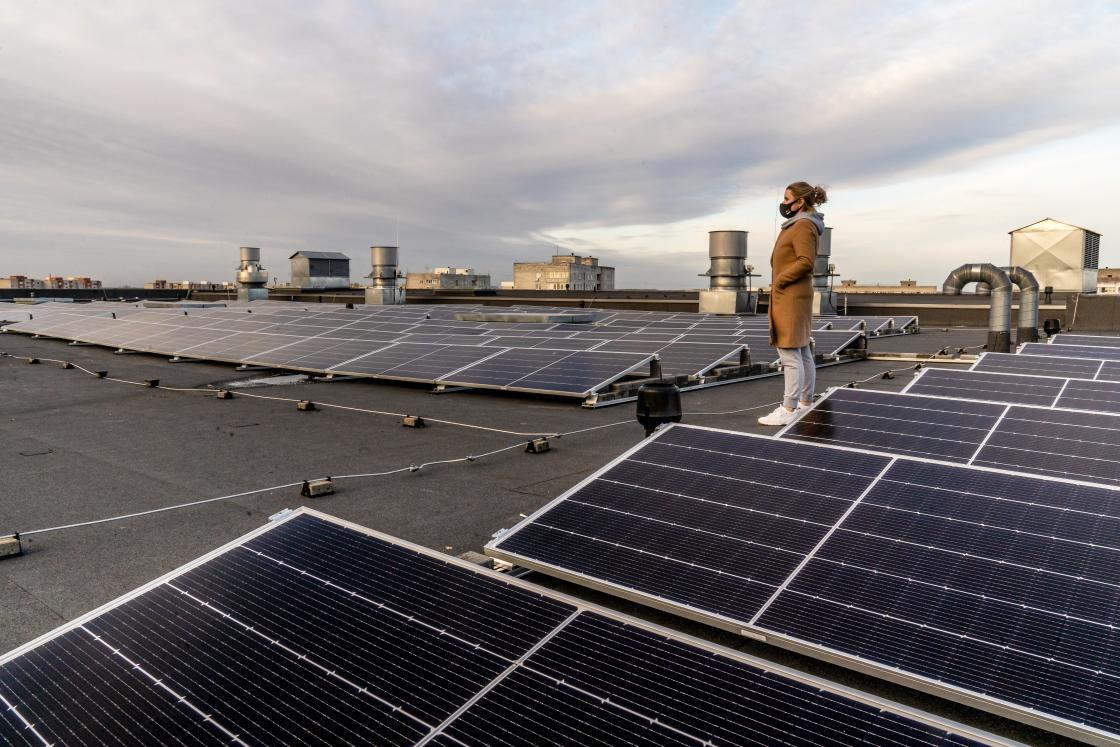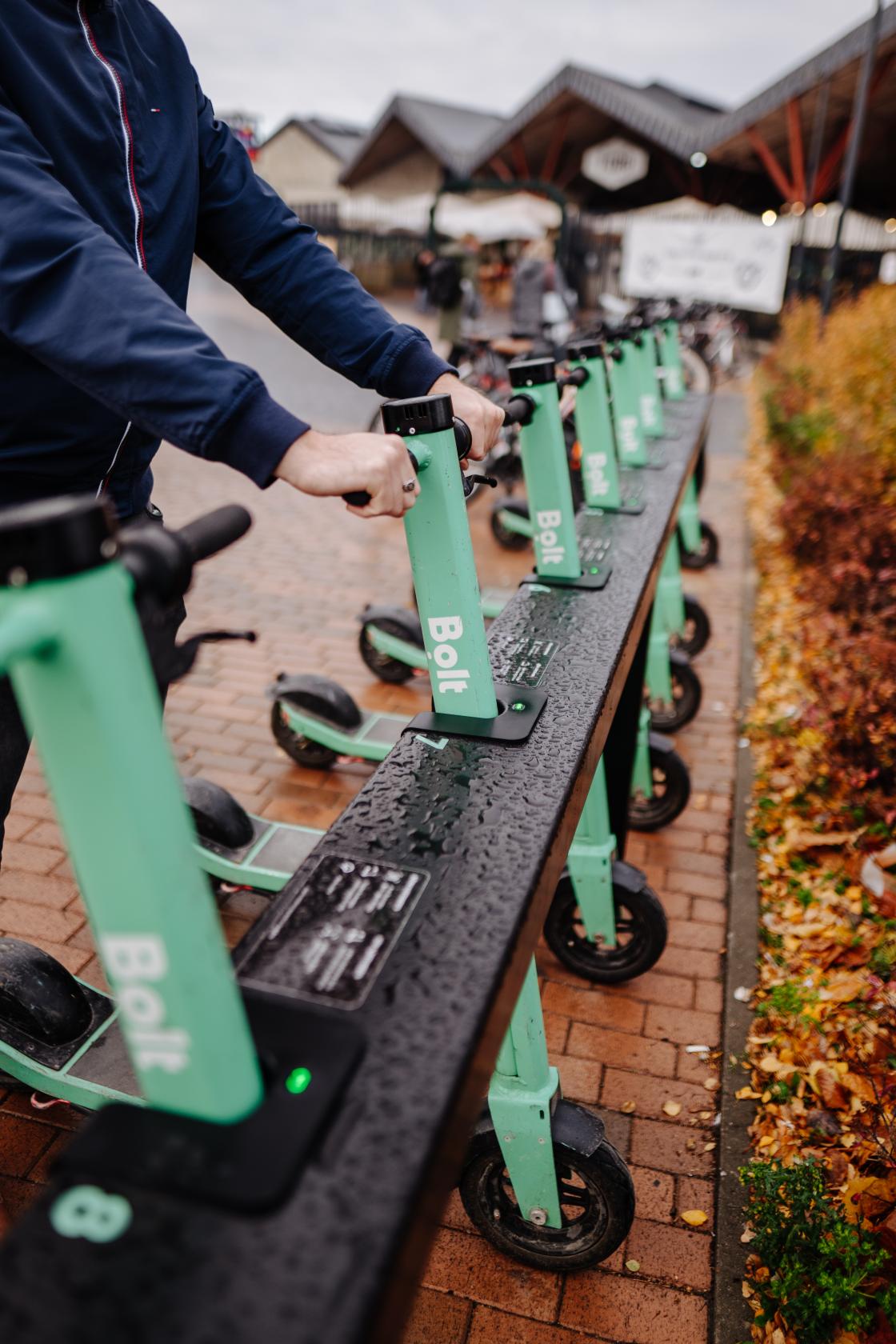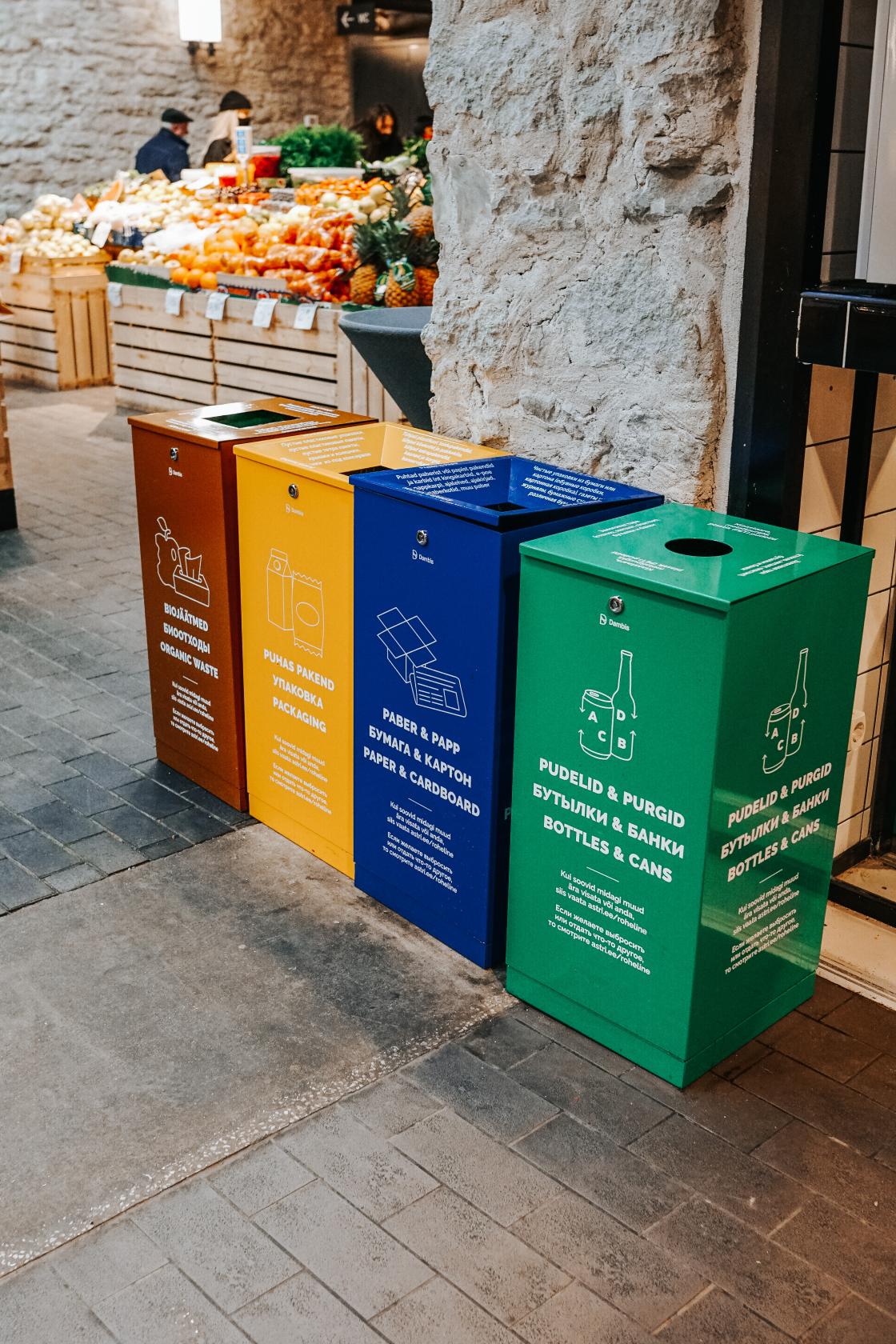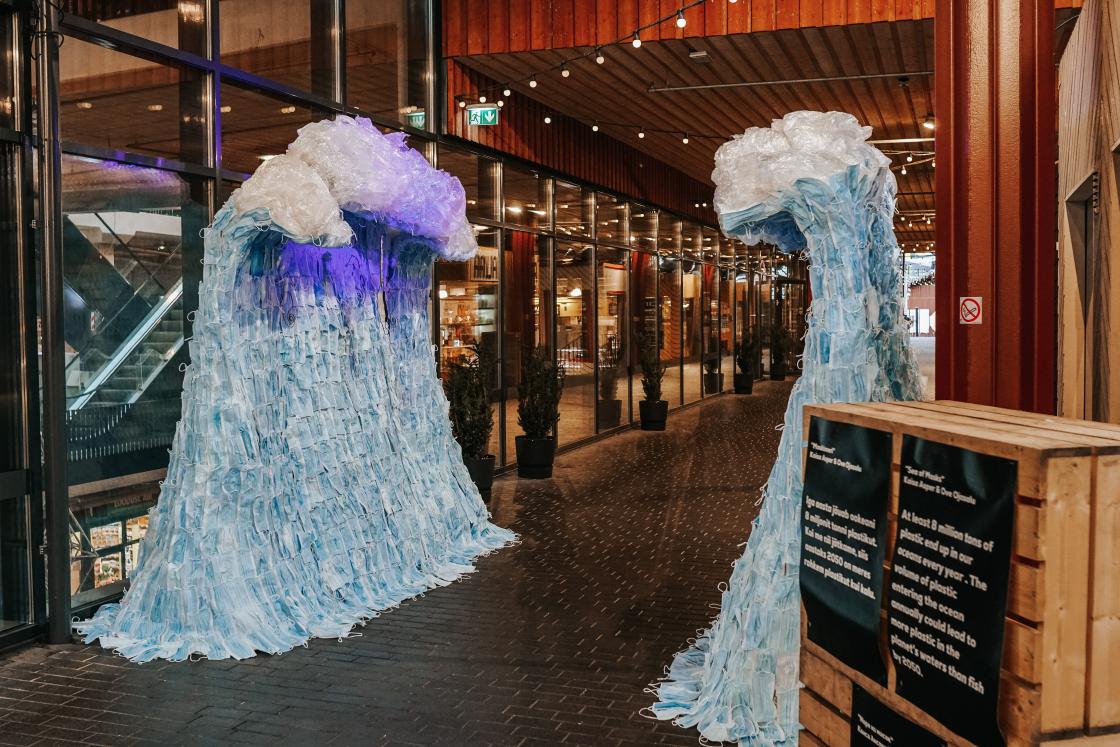Green Astri
See how you can give your old items a new life.
Climate change caused by human activity is one of the biggest problems of our generation[1] and companies also play an important role in solving it. Astri Group is on a direct course towards a greener future.
Green Astri is the corporate sustainability policy of the Astri Group.
The principles of corporate sustainability are agreed upon at the level of the council and board, including the reduction of our environmental footprint, based on the Paris Agreement, and business practices are harmonized with the UN Global Compact (also see the code of conduct).
Reducing the environmental footprint is a long-term plan and respect for future generations. It is today's responsible, smart and practical choice, which will help save both money and resources in the future.
In fact, the whole of Europe has taken a clear course towards the green transition. Estonia plans to be carbon neutral by 2050 as well. When talking about environmental sustainability, environmental footprint, sustainable development, climate neutrality or the green transition of companies, then as a rule, they mean bringing the amount of carbon dioxide[2] generated due to all the company's activities down to zero(this is a climate-affecting greenhouse gas that is increasingly released into the atmosphere due to human activity.).
Since Astri Group is a large company with a considerable environmental footprint, it is only logical that it must be reduced and eventually brought down to zero. “We see great potential in environmentally sustainable activities. In the long term, this will give us a competitive advantage,” believes Silver Hage, a member of the Astri Group Council, adding that environmentally friendly activities offer new business directions (e.g. electricity production), cost savings (e.g. more energy-efficient buildings or working from home), as well as convenience for customers (e.g. bicycle parking lots or the possibility to sort waste).
Three directions
Astri Group has more than a thousand cooperation partners in Estonia and the company's various centres, markets and online platforms are visited more than 27 million times a year. “We have divided our so-called green activities into three main groups – buildings and energy, transport and urban space and circular economy and responsible consumption – which cover the entire chain of the enterprise,” says Hage.
The biggest change that will be implemented in the Astri Group is taking into account the reduction of the environmental footprint when making decisions. And at every level. In other words: if there are several options to choose from and the environmentally friendly option makes even the slightest sense commercially, that choice is preferred. “We see that this angle of approach is often the key, as people are often used to thinking in the style of “but we've always done it this way” and don't even investigate new, more environmentally friendly, often even more commercially useful options.”
Objectives and measurement
At Astri Group, we want to reduce our own footprint both in the construction and operation of buildings, and to direct our partners to reduce their footprint as well.
When calculating the environmental footprint, we are using the Greenhouse Gas Protocol.
We are currently in the phase of measuring our environmental footprint, based on which we will also establish group-wide and unit-specific goals and metrics.
In the financial year reports of the units, there is a separate chapter "Green Astri", where the sustainable activities and plans of the unit so far are outlined. There are also plans to add the environmental footprint in tons of CO2e, once we have done the relevant analyses.
From 2024, we also plan to participate in the Responsible Business Index of the Responsible Business Forum (VEF).

Everyone has their own role
Although Astri Group is already on the path to a better future, Hage says that these are only the first small steps towards reducing the environmental footprint of the entire group. “We realise that we are still far from being “green”. We consciously refrain from speaking about our environmental activities so far with great fanfare, because we see too much so-called greenwashing, i.e. excessive marketing of activities with little environmental impact, which ultimately mislead people.”
He states that everyone has an important role to play in solving climate problems. “Although the media emphasises the reduction of the environmental footprint of private individuals too much, it still plays an important role. However, in addition to changes in consumer behaviour, changes are also needed by companies, as well as changes in the laws and investments from the state.”
Read more about Astri Group's green transition activities.

Buildings and energy
- We produce green electricity ourselves. In 2020, we created the energy company Roheline Astri OÜ, which builds solar power plants on the roofs of centres and markets. By the end of 2022, the total installed capacity will be 0.9MW.
- Where possible, we have switched to district heating and cooling.
- We reduce energy consumption with building automation. In cooperation with Enerbrain's building automation solution, we reduced energy use in Astri and Fama Centre by 10%. We are working on expanding building automation across the Group.
- In addition, we launched a successful pilot with Fusebox, who offers a so-called demand response service, with which we also reduce the electricity consumption of buildings. We are also working on expanding it across the Group.
- We are completely switching to LED lighting and at the moment approx. 99% of the unit's lights are LED. We are gradually replacing the existing lights with a plan to replace all lights across the Group.
- Where practical, we will switch over to lighting automation (e.g. in trade corridors).
- At night, we turn off advertising screens and outdoor advertisements.
- We use residual heat from Balti Jaam Market, Lõunakeskus and Fama cooling units to heat the building and heat cold water in the summer.
- If possible, we use our own construction scraps. For example, the partition walls of the Astri office in Tallinn are built from the old facade glass of the Astri Centre, the walls of Mileedi/Asko house from the old wall panels of Lõunakeskus, etc.
- During renovations, we will gradually switch to more energy-saving solutions, like more efficient cooling devices, replacing the roof covering with a light-coloured one, glazing the windows, etc.
- All our digital solutions (Astri.ee e-centre, partners' self-service and the centre's house manager) all run on wind and hydro energy.
- We analyse the environmental impact of new developments in order to reduce the environmental footprint of the construction and operation of new buildings.
- We are looking into heating and cooling our buildings with geothermal heating, soaking and using rainwater, reducing our environmental footprint by purchasing carbon emission quotas, etc.
- On new developments (for example, Central Market office spaces), we apply the BREAAM assessment, which takes into account the environmental impact, biodiversity, transport, etc.

Transport and urban space
- All our centres and markets have bicycle parking lots, including BiKeeps, as well as Bolt and Tuul parking spots for electric scooters.
- There are also Bolt electric scooter charging stations at the Balti Jaam Market and Central Market.
- Lõunakeskus also has a separate bicycle parking lot for partners, which reduces the number of people coming to work by car.
- The people of Astri Group have the possibility to work from home, which reduces the environmental footprint caused by transportation.
- The people of Astri Group have the opportunity to charge their electric car for free in the office parking lot.
- We brought a Lux Express bus stop to Fama.
- We operate the free bus line Lõunakeskus Ekspress in Tartu.
- The Balti Jaam Market and Central Market will become car-free areas above ground, where parking has been moved underground (except taxi, tourist bus and courier stops).
- We will continue to invest in bicycle parking lots in centres and markets (including bicycle parking lots for partners) and light traffic roads, which are also designed for basic things like smoothly driving over a curb with an electric scooter.
- We support the transition to electric cars, because electric cars are a more environmentally friendly choice than a car with an internal combustion engine. In all four cities, we have Eleport and Enefit Volt electric car chargers at our units.
- In the Balti Jaam Market area, waste and other items are transported by an electric vehicle.
- Cleaning work is carried out in the Balti Jaam Market area with an electric vacuum cleaner, which replaces blowers that run on fossil fuels. We are exploring options for electrification of administrative machinery in all units.
- In Lõunakeskus, LõunaTERA established a community garden in cooperation with the school, where school and kindergarten children can plant trees and bushes, sow seeds and study soil-borne insects.
- We are exploring bringing biodiversity to our green spaces.

Circular economy and responsible consumption
- We are helping to make recycling more popular. We do this through various collaborations (such as with Uuskasutus Centre collection houses in Tallinn, Tartu, Narva and Pärnu), events (such as the Basaar thrift store) and physical stores (such as Sõbralt Sõbrale, Basaar, Sveta Vintage and Fankadelik).
- We are testing reusable food containers in cooperation with Ringo.
- Our partners are obliged to sort waste into up to eight categories.
- In centres and markets, it is possible to sort waste into five categories in general areas.
- The Balti Jaam Market cooperates with the circular economy company Nutriloop to collect food waste from the market and direct it towards organic farming.
- In marketing, we prefer digital solutions to physical solutions and recycled paper to new paper.
- We use recycled toilet and printing paper in our offices and common areas.
- We reduced the production of merch to a minimum (mugs, pens, etc.). Only practical things that people are happy to use remain (such as Balta hoodies, market bags and key chains).
- At Astri.ee, each product has information on what you can do with the product after it has been used: how to sort, donate or sell them.
- At Astri.ee, when making a purchase, the customer can choose whether they want the order to be in recycled packaging if possible.
- We have gathered information on where customers can bring products that have been left so sit at home (e.g. clothes, electronics, medicines).
- The envelope of the popular Astri gift card is made of recycled paper and we collect used gift cards in the centres in order to recycle them again.
- We stopped selling fireworks at Astri.ee and at the Balti Jaam Market.
- We brought together food outlets in our malls and markets with a company producing biodegradable food containers to reduce the proportion of foam plastic.
- In the markets, vendors who sell food ingredients (for example, on the Balti Jaam Market's root street) are obliged to offer a biodegradable bag in addition to the usual plastic bag.
- At the Balti Jaam Market, we offer customers the cardboard boxes left over from traders to buy food in. Cardboard boxes can be found in the wind corridors of the vegetable street.
- In the general areas of the centres, the marketing fee is cheaper for electric and hybrid cars than for a regular internal combustion engine car.
- Lõunakeskus has free book points where customers can bring books left at home and take books with them for free.
- Even digital services have a small environmental footprint and in order to reduce this, we participate in the annual digital cleaning day to critically review the digital services of team members and the company (emails, cloud backup, software, etc.).
- We made a display aimed at overconsumption at the Balti Jaam Market for Halloween.
- We are giving momentum to the increasingly popular sustainable consumption habits:
o shopping with your own shopping bags or packaging;
o availability of vegetarian food;
o drinking water taps for centres and markets;
o the use of potted or artificial trees during Christmas.
---
[1] In reality, besides climate change, there is also a crisis of biodiversity, which is talked about much less.
[2] Carbon dioxide, or CO2, is not the only greenhouse gas. It is also important to look at other greenhouse gases such as methane. Its impact on climate change is significantly greater in the short term. For the sake of simplicity, different greenhouse gases are grouped together under the term CO2e, or carbon dioxide equivalent.
Materials
"Roheline Astri ettekanne LHV & Rohetiiger seminaril 14.04.2022"